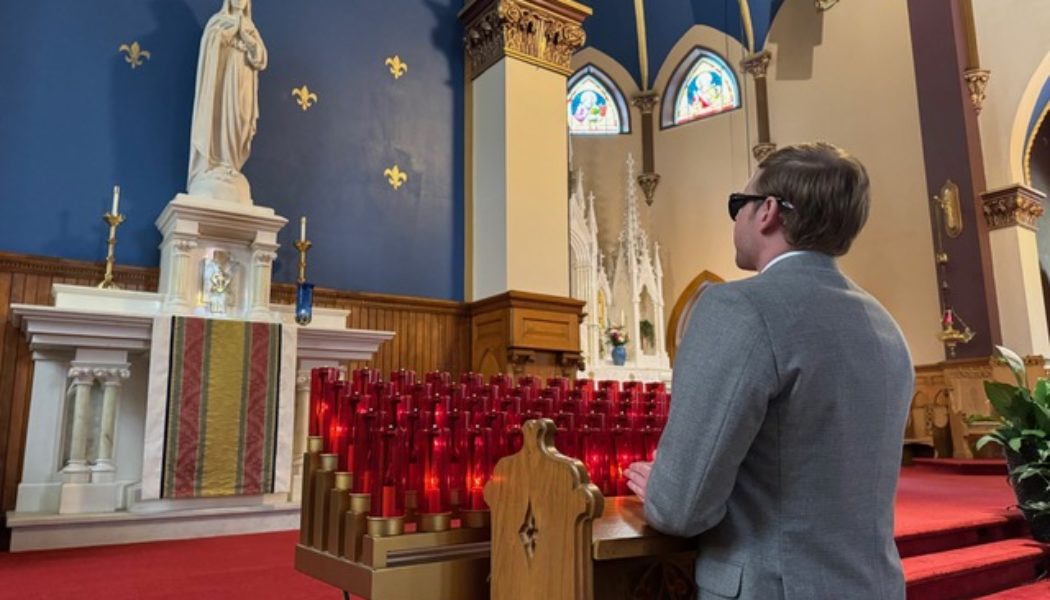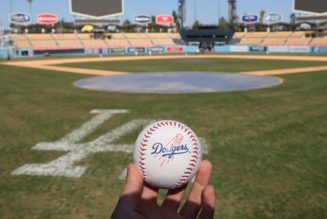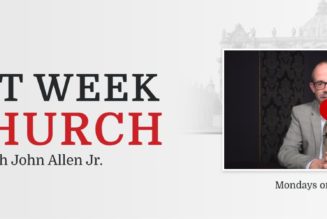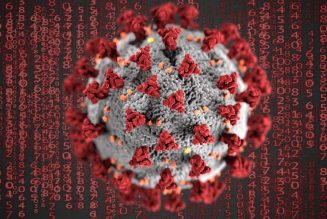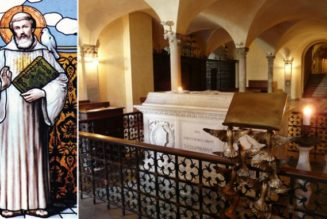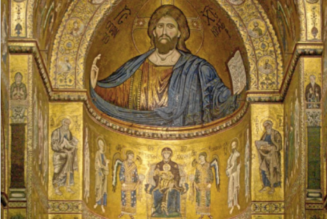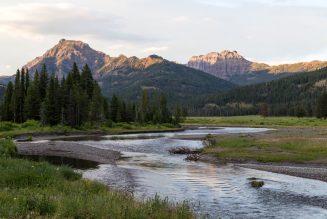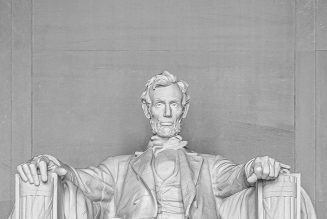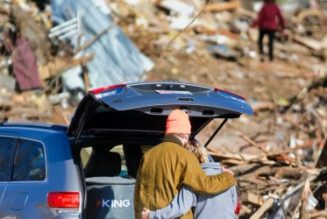In 2009, Justin Koelbl was in the midst of an outstanding cycling career. Despite being only 15 at the time, the Virginia native’s accomplishments already included five junior U.S. National Championships in road cycling.
Because the U.S. did not have many major cycling teams, Koelbl joined a men’s team in the south of France. The young foreigner’s presence sparked interest among the locals and inspiration for Koelbl himself. The teenager was in the country that annually hosts the best-known race in the sport: the Tour de France. Everything seemed to be lining up perfectly.
Then a mysterious illness appeared that threatened Koelbl’s health, career and even salvation. In anticipation of Father’s Day on June 16, Koelbl spoke to the Register of how he hoped and prayed his way out of this grand challenge to his temporal and eternal well-being.
What was your early life like?
I was born in Red Bank, New Jersey, and was raised primarily in northern Virginia. I grew up with a loving dad, mom and, yes, even a loving older brother. Whether it was my parents putting their careers at the service of the family or my brother patiently teaching me something new, I witnessed unselfish love throughout my childhood.
In a family of four, my dad would always say, “It’s better to have three people loving you than just one — yourself.” We enjoyed doing everything together, including bike rides on weekends. We explored different parks, roads and towns, riding as many as 100 miles in a single day. As a kid, well before having a driver’s license, these were highly exciting adventures.
When I was 9, I went to a professional bike race that hosted a kid’s competition. My parents asked if I would like to give it a try, and I thought it’d be really fun. Surprisingly, I won the race; and from then on, I started racing competitively.
My dad coached my brother and me as we went from local, to national, to international racing. Our weekend family bike rides grew into ever bigger and more exciting adventures.
What did your early faith life entail?
I grew up Catholic, attended CCD [Confraternity of Christian Doctrine] classes and regularly received the sacraments. I memorized what the Church taught, but didn’t know what it all meant.
The last question ever asked of me as a CCD student was about defending myself as a Christian when asked why God allows for so many horrible disasters in the world. I was dumbfounded. I couldn’t produce a worthy answer.
I continued to be troubled with that question, thinking, “Why has God allowed for so much suffering in the world?” Only after years of toil and hardship did I begin to find satisfactory answers.
Toil and hardship did not seem to be part of your early cycling career.
It seemed God gifted me a natural talent, as I set many school athletic records. I credit my family with bringing me to the next level. My older brother was bigger and stronger, so he used his strength to encourage and build me up. On many bike rides, he made sure I could keep up, even if sometimes he sacrificed his own training.
My brother basically gifted me his strength. This allowed me to train at greater speeds than if I were training alone. When it came to racing against cyclists my age, the speeds were slower and so the races felt easy.
Also, my parents always kept cycling fun. On any given day I looked forward to riding my bike. My parents would always say, “If you’re not having fun, then let’s do something else.” Well, I never really wanted to do much else, because they always made it fun.
What did you enjoy most about cycling?
I enjoyed training rides most — pushing my body to its limits. It felt like a physical self-emptying. Cycling at a high level meant tolerating a lot of pain, but I didn’t mind the suffering. What I learned early on was that the winner was usually the one willing to suffer the most.
I suffered enough to win over a dozen Virginia state and mid-Atlantic championships in junior road cycling. I even won five United States national championship titles in junior road cycling.
The next level would be to join a men’s club team, but the United States does not have major clubs. France has plenty, so I wanted to join one and compete for them in races such as the Tour de France, but in Olympic competition, I would represent our country.
I headed off to Team GSC Blagnac out of the south of France. The town’s mayor and other elected officials welcomed my family and me with a private reception at town hall that was only open to the press. As Americans on a French team, our presence was considered “exotic,” and our grand family adventure was continuing.
How did your surprising illness come about?
I had gotten to where I felt more comfortable riding a bike than walking, so when my legs began to feel unstable on the pedals, I knew something was really wrong. It was a slow decline in performance that turned into constant fatigue and pain in my legs.
At times, it felt like being poked with several pins; at other times, it felt like my feet were burning, and then it seemed like I had a cinder block on my foot when ascending a staircase.
Eventually, I had to give up cycling, and then the whole family returned to the U.S. Strangely enough, my dad and brother also developed serious symptoms around this time. My dad had throat and facial swelling, while my brother had leg swelling.
I visited doctors who worked at what are considered to be among the best medical institutions in the world, but they gave many different answers to my problem, yet they were confident they could make it better. By high-school graduation, I was given multiple diagnoses and underwent 15 surgeries that left behind six feet of surgical scars, but was still unable to return to cycling —or even an ordinary life.
Despite all the trouble, I managed to win multiple academic awards (including the Bausch & Lomb Honorary Science Award) and get accepted by McGill University in Montreal with enough credits to start my first year there as a sophomore. That was a victory, but the debilitating condition progressed — even to the point of not being able to read as a result of “convergence insufficiency” in my eyes. I used a camera pointed at a given book and projected the page onto the wall so that the size of the words would make them readable. This worked for a while, but I had to take fewer courses each semester and then had to take a medical leave from school.
Did they ever pin down exactly what your condition was?
A train of long medical terms were suggested over the years, but eventually “hereditary angioedema” and “peripheral neuropathy” summarized it all — not only for me, but for my dad and brother. The hereditary part is obvious, but angioedema is the swelling of inner layers of skin, while peripheral neuropathy relates to nerve pain in the hands or feet.
For a time, I even required a cane and ankle braces to walk. Other muscles were affected, and I developed constant burning pain in my hands and feet. Even the simplest daily activities became difficult. Every aspect of my life declined as the condition progressed.
I hated what seemed like so much senseless pain that was continually robbing me of my physical, mental, emotional and spiritual health. It was not just a valley among peaks, but a valley that got deeper, darker and discouraging. The glorious mountaintops that had once been in full view started to recede and were near total eclipse.
I previously mentioned the willingness to suffer in the context of becoming a better cyclist. Well, this paradigm did not make a smooth transition here. The two major reasons why were: One, when pain became too intense, I could not slow down or get off the bike entirely; and, two, there was no finish line in sight — that is, no ultimate purpose for the pain. It was a completely cruel ordeal, rather than an appreciated challenge that, when embraced wholeheartedly, would lead to victory.
What was the trajectory of your faith during onset and progression?
For years I prayed for relief from suffering, but things only got worse — not only physically, but mentally, emotionally and spiritually. I found very little help from the doctors who lacked in compassion. Frequently, they did not take into account the individuality or humanity of patients. Fortunately, I now know a handful of doctors who take their profession as a true calling from God.
Back then, however, knowing that my very life was at stake, I needed to aid the medical professionals in some way. Applying the same intensity to medical research as I did to cycling, I was determined to find a solution.
I became obsessed with medical research and focused on the cellular and molecular pathways of the ailments affecting me and my family. All my hope was in this research, because I saw no hope anywhere else.
Faced with a mountain of adversity, it felt like God was against me in this struggle. It was increasingly hard to find reasons to go to Church and talk with God in prayer. The existence of suffering — not just my suffering, but any suffering — discouraged me from seeking God.
I wondered, “Where was the love from an all-loving God?” I couldn’t find a satisfactory answer, so, instead, developed bitterness and resentment towards God, all the while thinking he didn’t love me or anyone else.
What was the turning point?
It was the love of my dad. My dad proved himself time and time again to always have my best interest at heart. I had many arguments against God’s love, but my dad was convinced of God’s love for us.
Just to consider God’s love for me in the face of all the pain I experienced was like pulling teeth, but despite heavy reluctance, I trusted my dad more than myself. I did not see God’s goodness clearly, but I reluctantly gave him the benefit of the doubt.
After that initial opening, I came to use the same enthusiasm for training and finding a treatment, for intensely seeking out who God is and why he allows so much suffering. It was, and still is, a difficult journey, but what I found was more valuable than any races I won or even treatments I found.
I started to “meet” many great Catholic teachers through books and other media. I read the little classic Uniformity with God’s Will by St. Alphonsus, listened to the Fulton Sheen audio series called Life Is Worth Living and watched Mother Angelica Live reruns. Through these holy souls and others, I learned of how we all suffer in various ways, but the key to happiness here and hereafter is how we suffer.
Just like one of the two thieves crucified on either side of Christ, we can either suffer on our own or we can suffer with Christ. The former brings more frustration in this life and the next, while the latter transforms suffering and brings us closer to eternal beatitude.

Now, I love reading the Bible, going to Mass, praying the Rosary, and learning more about the Church and its countless prayers, unsurpassed architecture, vast history, sublime music, steadying sacraments, ancillary sacramentals, charitable works, catalog of heroic souls, etc.
I’ve been studying the Cristeros in early 20th-century Mexico. I recently saw an image of a tiny, ornate chapel in Connecticut dedicated to St. Joselito [Saint Jose Luis Sanchez del Rio, born in 1913 and killed in 1928]. It was a vivid reminder of the agony of martyrdom being transformed into the joy of heaven. St. Joselito is especially inspiring for me, since some of his tortures resulted in extreme foot pain — and around the same age mine started.
The Church I once resented, I have now come to find fulfillment in. It brings to mind the Fulton Sheen saying about how there are not 100 people who hate the Church, but there are many who hate what they mistakenly believe the Church to be.
What were some of the key aspects of the Church’s teaching on suffering that you appreciate the most?
In Colossians 1:24, St. Paul rejoices in his own suffering and says he is making up for what is lacking in Christ’s sufferings. From an objective view, Christ’s sufferings lack nothing, but from a subjective view — that is, the perspective of each soul — personal participation is required. We do not automatically get to heaven because of Christ’s sufferings; we must accept and participate in them.
Suffering is a means by which I can fulfill my purpose in life: to seek, know and love God. With Jesus transforming suffering into something holy, I can love God the Father by gifting him my suffering through the suffering of his Son.
I especially enjoy putting this into practice at every Mass. I unite my sufferings to the Real Presence of Jesus as he offers himself to our Heavenly Father. After this life, I’ll never again have these times to use my suffering to love God, so I want to make the best of them now. It’s like looking back after a race and thinking, “If only I had trained better, I could have placed higher.” Well, we are still in training now, so we have plenty of opportunities to prepare now for reaching the highest places in heaven.
Another key aspect of the Church’s teachings is that, while suffering can be very beneficial, it is also perfectly fine to seek its alleviation — as long as this seeking is done with the love of God in mind. If the motivation to alleviate suffering is not rooted in God, it will ultimately lead to more suffering.
What is your family’s current health status?
I was able to uncover some fascinating things that helped me, my dad and my brother. We had similarities and yet differences. There were some things that improved our lot, but to this day, we all suffer. After having a stroke, my dad’s condition is the worst, and my brother’s is the best.
I have some improvements, but I’m still fighting symptoms every day. As my physical limitations allow, I hope to share the Catholic Church’s life-changing teaching on suffering by writing online or talking on radio, podcasts or other media to discuss the topic.
You’re also writing a book?
The book is my spiritual journey, focused on the mystery of suffering. It took years of toil and hardship to get to this point of finding tremendous joy in suffering. I still struggle, but the beauty of God’s love amidst suffering remains brilliant.
As for the future, I hope to have the book published in 2025. For now, in upstate New York, I value regaining the helmet (or hope) of salvation mentioned in Ephesians.
I had spent my whole life being taught about God, but only when I intentionally sought him was the value of my life experiences revealed in his light. By sharing my experiences and everyday application of redemptive suffering, I hope to lighten the journey for others so that the mystery of suffering may be more easily enjoyed as a path to everlasting peace.
Trent Beattie is the author of Fit for Heaven (Dynamic Catholic) as well as Scruples and Sainthood (Loreto Publications). He is also the editor of Apostolic Athletes (Marian Press) and Saint Alphonsus Liguori for Every Day (Mediatrix Press).
